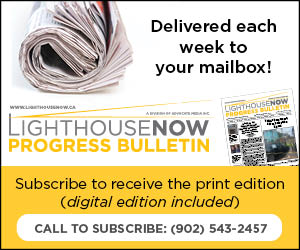
2021-09-01
RQM diversity and inclusion committee gaining its footing
by KEVIN MCBAINLocal Journalism Initiative Reporter
It's been a couple of years since the Region of Queens Municipality (RQM) first determined it wanted a committee to work on making the municipality a more diverse and inclusive place, but finally a group has been launched and has begun working on the task.
Formed almost a year ago, RQM's Diversity and Inclusion and Action Team (DIAT) has chosen its lead members, Dr. Lynda Earle and RQM staff member Eric Levy, and launched a survey to determine where the community's needs lie.
"We identified that in order to work well with communities we need to talk to them. As a starting point during COVID-19 and lockdowns we created a survey," said Levy. "We wanted to get community feedback on the residents' sense of belonging and how that is developed in areas where people feel excluded. Then we can look at the themes therein which will allow us to focus on those areas."
The pandemic, and the fact that the committee meets just once a month, has meant a relatively slow pace in getting off the ground. In its meetings, the team goes over a list of ever-changing priorities and discusses ways to address these.
DIAT was established in the fall of 2020 to review and identify areas where the region, business, and groups can improve their ability to include everyone no matter what their circumstances.
"It's an initiative around understanding that we all have a need for the sense of belonging and to be a part of a community, and recognizing that in our world that doesn't always happen," said Earle. "There are so many ways that people may feel excluded, whether it's race, religion, gender, sexual identity. There are so many ways in which people, unfortunately, can be excluded."
The group's role is to provide advice to the municipality around creating partnerships, reviewing policies and practices and encouraging awareness of issues of inclusion, as well as creating opportunities to celebrate diversity and inclusion.
Levy has also been tasked with looking at RQM internal policies and practices through a diversity and inclusion lens.
"Then, just seeing what we can do to bolster inclusion as a workplace, community and a governing body," he said.
Levy created a social media campaign to bring awareness to the committee and has travelled around the region talking to local businesses and community groups. The group also has secured a small budget for a grant program for businesses, groups or individuals who are looking at doing a project or work around diversity and inclusion.
According to Earle, if anyone needs proof of the need for a committee all one needs to do is look at news headlines over the past year.
"There are plenty of examples of why we need to be focused in this way. I hope everyone is aware and has a growing understanding of Canada's history in terms of the exclusion and systemic racism ... Indigenous and Black people for example," she said.
Earle conceded that the work is challenging and priorities are ever-evolving but, she said, from a community perspective the science and research is quite clear that a community with a sense of belonging and where everyone is engaged and included leads to higher productivity and health metrics improve.
"We are all humans and our basic need as social creatures is to be included and have a sense of belonging to community. It's a fundamental human need that we all share regardless of who we are or where we come from," said Earle.






